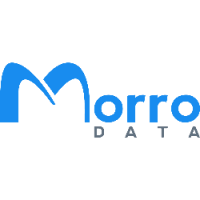Why NAS Doesn’t Make Economic Sense
Why NAS Doesn’t Make Economic Sense
Storage and Backup Solutions for SMB
When it comes to storage and backup solutions, a NAS device is a common choice amongst small and medium size businesses (SMB). And at first glance, their popularity makes total sense; they’re conveniently located right on your local network, they provide fast access to your critical business data, and they enable relatively good protection against data loss when placed in a RAID 5 configuration.
Network Attached Storage Pricing
But the total cost of ownership (TCO) of using NAS to provide comprehensive file services that include unlimited storage, multiple office sync, and disaster recovery can price many businesses right out of the market. For example, consider the following:
- The NAS hardware device itself, without disks, can cost between $500 and $2,000.
- The cost for a single 2TB disk costs an average of $100. You’ll need one for each bay, plus a couple of spares, in the event of a disk failure. So for a 4-bay NAS device, you’ll want to buy 6 disks for a total cost of $600.
- RAID comes at a storage cost; as a general rule, consider one of your disks gone. So in the example above, our 8TB of raw storage will shrink to 6TB of available storage in a RAID 5 configuration. In other words, if your data needs are 8TB, you’d better also plan on buying bigger disks (and a higher cost, of course).
- You’ll need at least three devices – one for storage, one for backup, and one at an offsite location for a disaster recovery solution. So triple the cost for all hardware and disk costs discussed above.
- Some vendors license various software components separately, so any advanced functionality you need to add to your NAS may add hundreds of dollars in additional costs. This includes replication software, which can cost upwards of $500.
- As your business grows, so do your data requirements. If you grow beyond the size of your initial disks, you’ll have to replace all of them – including the spares – and carefully rebuild your array, step by step, disk by disk. This, alone, can cost thousands of dollars. And if your existing NAS hardware doesn’t support the disk size you need, you’ll have to purchase all new hardware as well.
Hidden IT Costs
All told, considering the numbers above, the capital expenditure (CAPEX) for just an 8TB solution – a very small system for most businesses – can balloon to as much as $8,000. But the initial CAPEX for the hardware and software is only the beginning! Operational expenditures (OPEX) such as day-to-day administration of the systems, heating, and cooling, and colocation facility expenses must also be considered in calculating the true TCO of a NAS solution.
But at the risk of sounding like a bad infomercial, “but wait, there’s more!” That’s because all of the numbers used above assume just one office location. But what if you have multiple offices? Whether a small sales office in a different part of the country or a full-fledged regional location in a different part of the world, every office generates business-critical data that needs to be stored, replicated, and centrally protected. And as you may have already guessed, yes, this all comes with a significant price tag.
So what’s the bottom line? NAS really doesn’t make economic sense for the vast majority of small and midsize businesses; the TCO factoring in both CAPEX and OPEX is simply too high – and, in fact, it can become a money pit of sorts. So if you’re considering NAS, make sure you think through all the economics completely to make sure it’s the best solution for your business.
Hybrid Cloud Solution – Cloud NAS Storage
Morro Data CloudNAS is a hybrid cloud file server done right. It provides all the benefits of the cloud and the advantages of on-premises storage at an affordable price point. The only hardware required with Morro CloudNAS is a palm-sized CacheDrive. There’s no need to manage, maintain, or even touch the device – all data is saved directly to the cloud and, using Cache & Sync technology, files are automatically cached in the CacheDrive, and backups are automatically performed in the background. The files can be immediately and continuously accessed by multiple users at LAN speeds, using your regular broadband connection. The file size is only limited by CacheDrive capacity, making it easy to store and share even large multimedia files across groups, between multiple office locations, and even with partners and vendors.

Visit www.morrodata.com to learn how a hybrid cloud file server can help you reap the best of both worlds by blending the benefits of cloud storage with those of a local filesystem. Related reading: From Nas to Cloud NAS – What is NAS?
